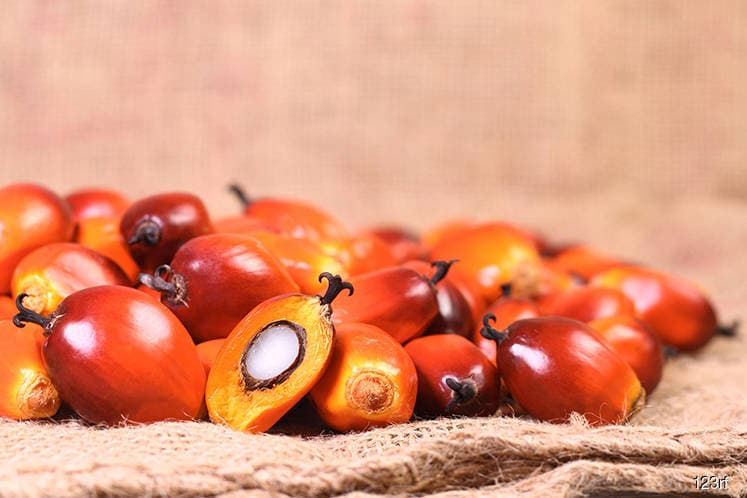
This article first appeared in The Edge Financial Daily on April 29, 2019
KUALA LUMPUR: China expressing its commitment to buy more palm oil from Malaysia may be a much-needed boost for the sector, but analysts caution that the positive impact is unlikely to be immediate.
This is mainly because Beijing is not expected to execute the purchase of the additional 1.9 million tonnes of palm oil soon enough to help ease inventories that have remained stubbornly higher than desired.
Contacted by The Edge Financial Daily, JF Apex Securities’ analyst Low Zy Jing said any impact arising from the agreement “will not be instant”.
“While it is definitely not a negative development, before any drawdown on the stocks actually materialises, I would not be overly positive about it. China is not taking home that 1.9 million tonnes of Malaysia palm oil right now, and our stockpile is definitely still too high,” he said.
By the same token, any Chinese investment in the construction of new capacities within the local downstream businesses in Malaysia will likely take time, but could help improve domestic demand of the locally-produced palm oil or fresh fruit bunches in the longer run, he said.
“The process of funding, setting up and building up until production commences take some time. The demand for upstream products will then be higher as higher downstream activities require more feedstock.
“But it is not necessarily just the quantity, as China could also be looking at investing in the diversification of downstream products, which will essentially help to boost demand for palm oil as well,” said Low.
At the start of Prime Minister Tun Dr Mahathir Mohamad’s five-day official visit to China last week, two memoranda of understanding (MoUs) were entered into, one of which was aimed at enhancing palm oil trade and China’s investments in the downstream palm oil business.
Under the MoU inked by Primary Industries Ministry’s Secretary-General Datuk Dr Tan Yew Chong on behalf of Malaysia, China agrees to buy an additional supply of at least 1.9 million tonnes of palm oil from Malaysia over five years starting 2019.
The volume — valued at RM4.56 billion based on an average price of US$600 per tonne — is in addition to the four purchase contracts signed in March for the export of 1.62 million tonnes of palm oil from Malaysia to China, with a combined estimated worth of US$891 million or RM3.64 billion.
Primary Industries Minister Teresa Kok said the additional commitment from China — which already was Malaysia’s second biggest importer of palm oil and palm-based products in 2018 — will be “a big help to smallholders” in Malaysia.
The palm oil price has fallen by some RM200 a tonne since its January peak, mostly under the pressure of subdued demand amid elevated stockpiles, which stood at 2.92 million tonnes as at end-March.
Last Friday, the benchmark palm oil contract for July delivery closed RM38 lower at RM2,119 a tonne.
“Higher overall purchase from China of Malaysian palm oil will help crude palm oil (CPO) prices, but the positive impacts that may result from the agreement depends ultimately on the quantum of the take-up,” CIMB Research regional head of agribusiness Ivy Ng told The Edge Financial Daily when contacted.
Ng said if agreed in such a way that China’s take-up of Malaysian palm oil is front loaded in the first half of the five-year period, the development could be positive for CPO prices in the near- to mid-term.
“Vice versa, if it is spread out over the five-year period, we see only gradual positive impacts on stocks and therefore prices,” she added.
Ng added that China’s involvement in the downstream palm oil activities in Malaysia may help draw down locally-produced stocks in the event it invests in processing capacities that allow for new or additional usage of palm oil, rather than competing with existing palm oil processing capacities in the country.
Another area of concern, according to JF Apex’s Low, is whether China’s promise to purchase additional supply of palm oil from Malaysia, being the second-largest palm oil producer, is at the expense of reducing imports of the global commodity from other producing countries.
“The agreement is currently still very preliminary. But if that is the case, the total net demand may still be the same, which is why it is important to take a closer look at details of the agreement and monitor it over the years,” he said.
An analyst, who declined to be named, said the agreement will make no drastic changes to the current industry dynamics.
“I do think that this will instill more positivity and confidence into the plantation sector, but it is not a game-changer,” the analyst said, explaining that the 1.9 million tonnes, if evenly spread over five years, represent a mere 2% of Malaysia’s annual CPO production of about 20 million tonnes. In 2018, Malaysia produced a total of 19.52 million tonnes of CPO across a total oil palm planted area of some 5.85 million hectares.
China has been a key buyer of Malaysian palm oil, although Malaysia’s annual palm oil export volume to the country shrank to below three million tonnes after 2015, overtaken by Indonesia.
As of last year, Malaysia exported 3.07 million tonnes of palm oil and palm products valued at RM8.38 billion to China — up 7.3% from the 2.86 million tonnes valued at up to RM9.39 billion in 2017.